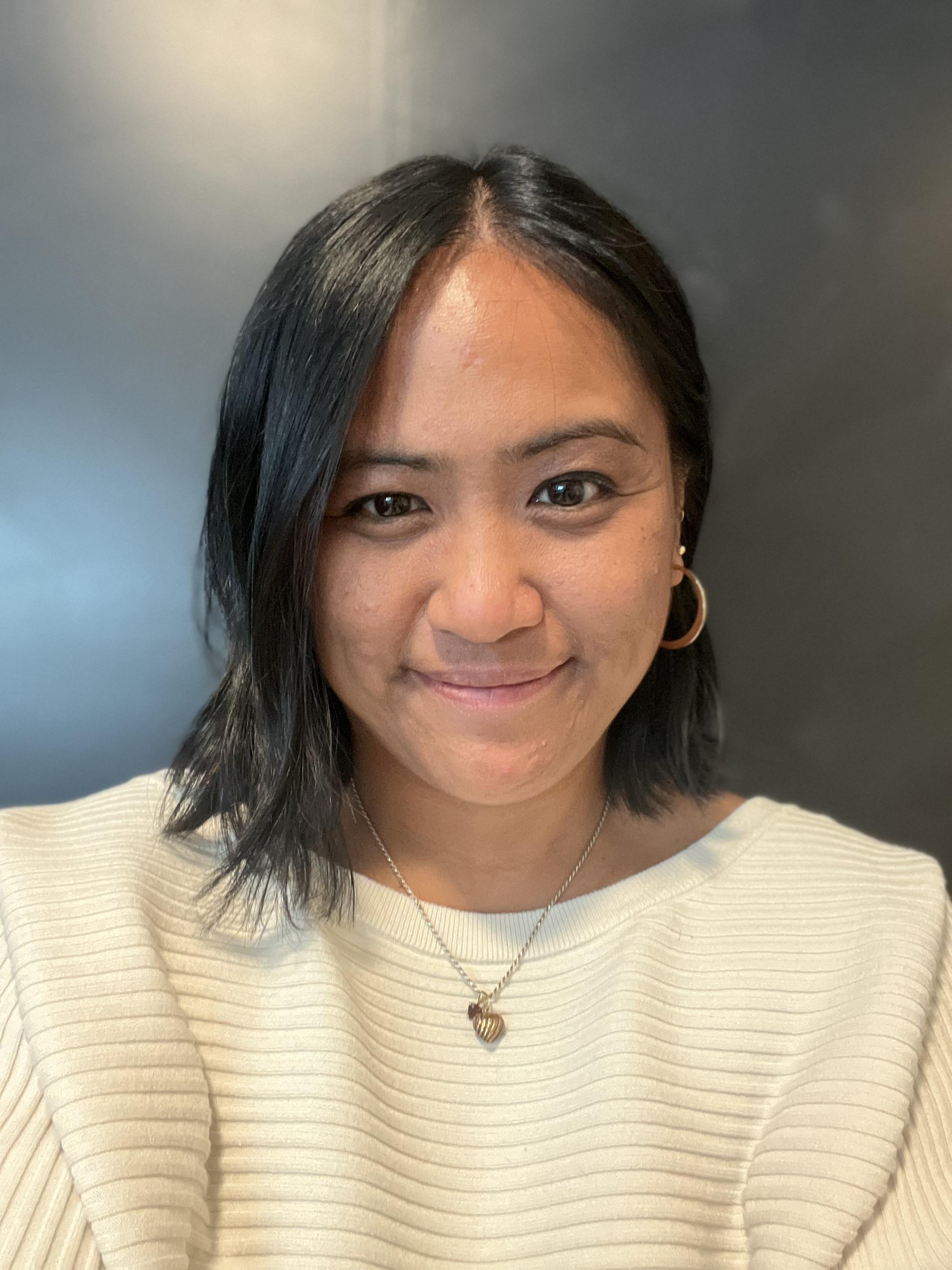MSW/MS-DRL alum treats trauma in underserved communities
Before pursuing her dual Master of Social Work (MSW) and Master of Science in Disaster Resilience Leadership (MS-DRL) at Tulane, Ashley Tecson spent more than a decade working as a film publicist. After a series of tragedies – including the onset of the COVID pandemic, a house fire, and the loss of her mother – Tecson knew it was time for a change.
“I was inspired to become the person for others that I had needed during that time,” she said. “Someone who could provide stability in times of crisis, help navigate all the red tape, and provide tools to rebuild stronger and better equipped to handle future and ongoing adversity.”
Tecson wanted a degree that centered not just emergency response or mitigation but the social and emotional repercussions of disasters. So eleven years after graduating with her Bachelor’s, she enrolled in her first semester of online classes.
Zoom classes felt isolating at first – but Tecson soon began to make lifelong connections. Her classmates were from all across the country, each with their own unique perspective. But, she says, they were all there for the same reason: A deep desire to help others. Hearing about her classmates’ experiences and ideas inspired her, expanded her understanding of the world, and, above all, reminded her that she was not alone.
“Lean on one another. It’s a wild and unprecedented time to go into social work and disaster resilience, and we need all the allies we can get! Getting to know the people who were entering the field alongside me gave me more hope for the future than anything else.”
Tecson met many of those allies in person for the first time at the Disaster Resilience Leadership Academy’s Summer Institute – an intensive three-day course that allows students to meet their classmates face-to-face, tour New Orleans, and talk with faculty and community leaders in person. During the institute, Tecson says her course material truly began to click, as she saw firsthand the unfiltered realities of life in New Orleans and the Gulf South.
Tecson says she appreciated how candid her Tulane professors were about not just curriculum content but professional life as a social worker – encouraging students to build self-care routines and emphasizing the importance of flexibility.
“Social work and disaster resilience roles are demanding, and the obstacles are endless and constantly evolving,” Tecson said. “The philosophy of leading with humanity rather than technicality was reinforced throughout every course and discussion and has continued to inform my approach to all the work I do.”
Now, Tecson is a Clinician Social Work Associate at Vista Counseling & Wellness Center in Portland, Oregon. Her clinical work focuses on individual trauma caused by anything from large-scale disasters to interpersonal relationships. Unlike larger nonprofits or government-funded agencies, Tecson says working at a community mental health center allows her to engage directly with specific populations and issues.
Among those populations are people of color, first- and second-generation immigrants, and LGBTQ+ folks – communities Tecson says she’s proud to be a part of herself. Her goal, in part, is to make these populations feel seen and heard in a world that often dismisses their emotions.
“My Disaster Resilience Leadership classes taught me a multitude of ways to build resilience before, during, and after disasters of all kinds,” Tecson said. “I incorporate them into every session with clients with the hope that doing so at the individual level can ripple out to strengthen communities and infrastructure as well.”
Tecson says that her clients’ need for that resilience-building has become more dire in the past year. Factors like the increasing cost of living, high rates of detainment and community violence, and heightened political tensions have strained resources and exacerbated mental health and social well-being struggles, particularly for vulnerable populations.
“I strive to empower my clients,” Tecson said. “Helping them feel better prepared to navigate legal systems and hostile confrontations, exploring tailored ways to foster a sense of hope and belonging, connecting them to the grassroots organizations and mutual aid networks that redistribute and share resources, or simply providing a safe space for them to speak freely without fear of persecution.”
In her personal life, Tecson tries to push herself toward growth – learning to sail, pursuing new mental health intervention certifications, and practicing Portuguese and Tagalog. Reaching for new heights helps her put things in perspective and reminds her that joy lives everywhere, including right where she is.
“I love to travel and explore new places,” she said. “It’s a good reminder that there’s so much more beyond my current experience. The ocean has always been grounding for me for similar reasons, reinforcing that things are constantly in motion and this too shall pass.”

